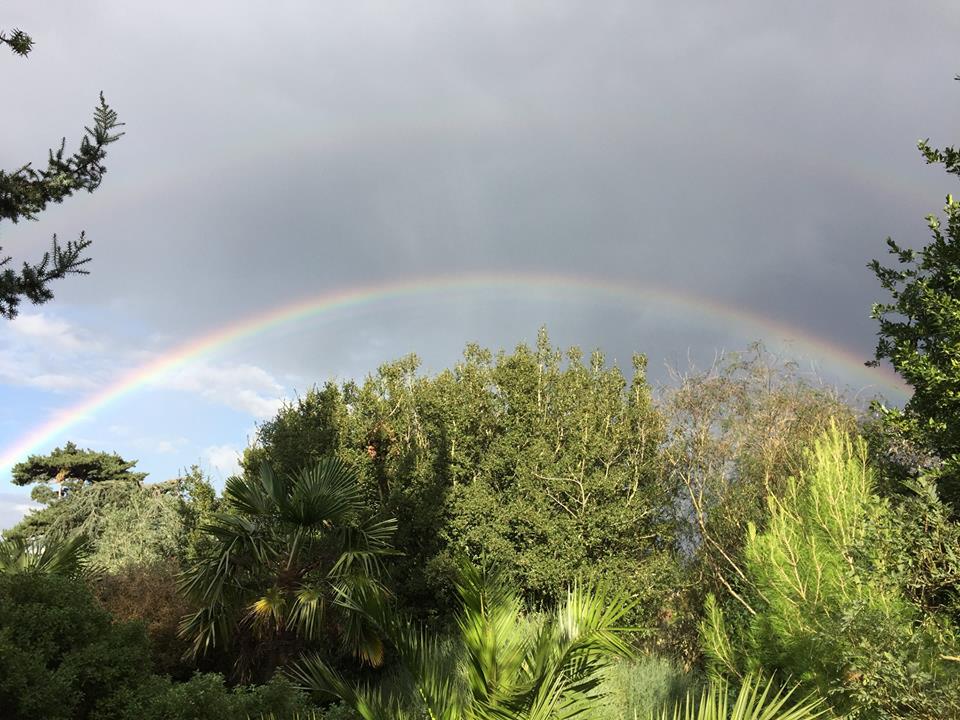As I cycle through Vankleek Hill, this week, I am enjoying the wide variety of Irises I see growing in so many gardens. If all the irises in town were put together, they would look like a rainbow! This is fitting, since the name, Iris, comes from the Greek word for rainbow.
Irises are among my very favourite garden flowers. In homeopathy, half a dozen types are currently known and used. Of those, the two most commonly used are Iris Tenax and Iris Versicolour.
The Greek goddess, Iris, would lay Iris flowers on the graves of women. Homeopathically, a person needing Iris Versicolour has a great fear of death and has horrific dreams of dying, waking up in her grave, of gravediggers, and of finding corpses. Also, since Irises were used in the making of perfume, gravediggers were often hired to dig up their roots as well.
Orris root, used as a fixative for perfumes, comes from another Iris, Iris Florentina, the white flag iris.
Iris Tenax is best known in homeopathy for its use in appendicitis, both to cure the condition and in the case of a burst appendix, where peritonitis has set in. I have used the remedy successfully in both instances. I have also had cases where Iris resonated with cases of Shingles (Herpes Zoster).
Iris Versicolour, on the other hand, is most often used to treat headaches, especially migraines.
The person who needs this Iris, though secretly worried about death, is often lively, great fun to be with, the life of the party! This fits with the bright, colourful, showy nature of this lovely plant.
Irises, as well as Chelidonium (Greater Celandine), Taraxacum (Dandelion) and some of the other spring plants we have currently growing in our gardens and woods, all have an affinity to the liver. Spring is a traditional time to cleanse the liver. It is no accident that rhubarb, fiddleheads, and asparagus all natural detoxifiers, grow at this time of year. Some of these plants are edible, either raw or cooked. Some need to be homeopathically prepared to remove all toxicity and prescribed by a homeopath. Others still can be made into tinctures and taken in small quantities at the advice of a herbalist.
Pat Deacon, RSHom, HMC, Hom. lives in Vankleek Hill and is a registered homeopath.




